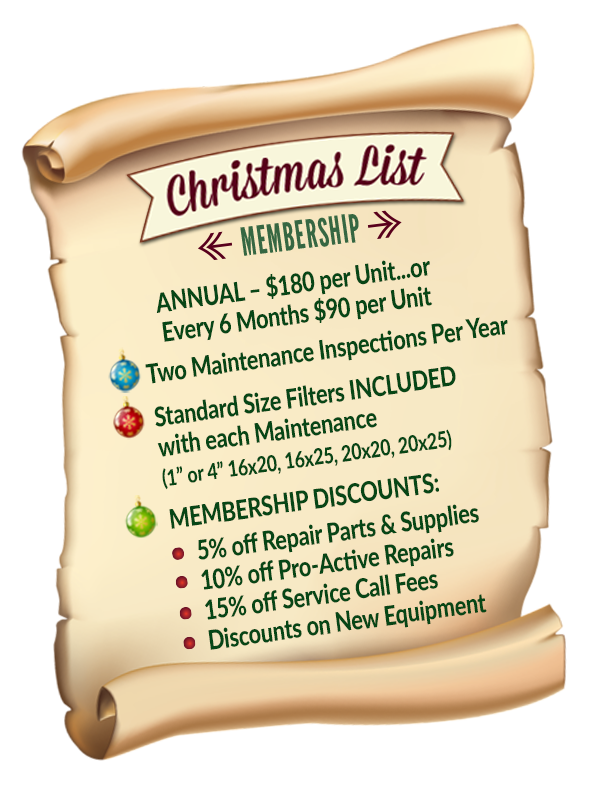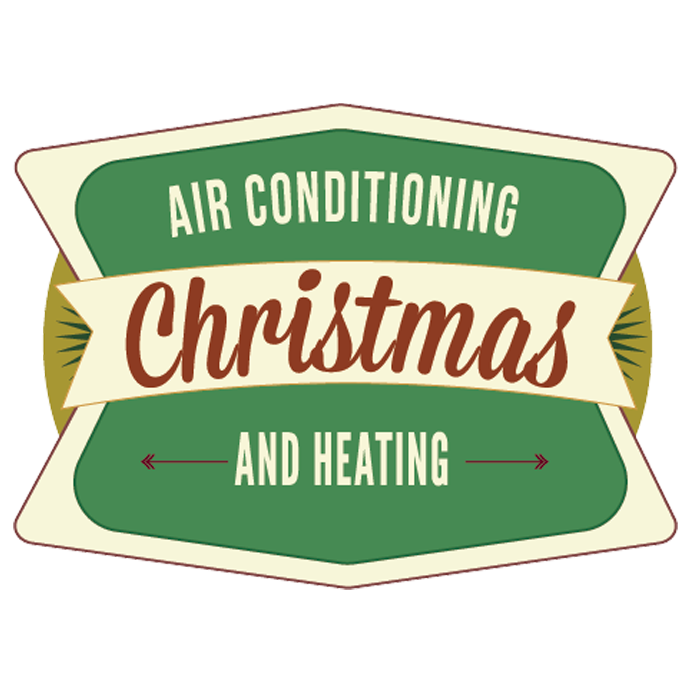:
;Are there any energy-saving tips for operating my cooling system more efficiently?
Yes, energy-saving tips include using programmable thermostats, sealing ducts, keeping filters clean, and maintaining regular maintenance. Other adjustments including a window covering or curtain that is effective at blocking out sunlight can also help keep your home cooler.
:
;Are there any rebates or incentives available for upgrading to a more energy-efficient cooling system?
Yes, there are often rebates, tax credits, or incentives available for upgrading to more energy-efficient cooling systems. Check with local utility companies or government programs for details.
:
;Are there eco-friendly home cooling options available?
Eco-friendly cooling options include systems with high SEER ratings, smart thermostats, and refrigerants with low environmental impact. Solar-powered cooling systems are another sustainable option for homeowners looking to reduce their carbon footprint.
:
;Are there financing options available for upgrading heating systems?
Many heating system providers and local governments offer financing options or rebates for businesses upgrading to energy-efficient systems. These programs can offset the upfront costs of installing new systems. Business owners should inquire about available financing or incentive programs with their service providers.
:
;Can AC maintenance help reduce my energy bills?
AC maintenance can significantly reduce energy bills by optimizing system efficiency. Regular cleaning of coils and fins prevents ice buildup and improves cooling performance. Professional technicians use specialized tools to remove leaves, algae, and other debris.
:
;Can I get emergency plumbing in Lantana, TX?
Yes! We offer 24/7 emergency plumbing for homeowners in Lantana. Call 469-919-9928 for immediate assistance.
:
;Can I get emergency plumbing in Southridge, TX?
Yes—we offer 24/7 emergency plumbing services in Southridge. Just call 469-919-9928 anytime, day or night.
:
;Can I install a cooling system without ductwork?
Yes, ductless mini-split systems are an excellent choice for homes without ductwork. They are simple to install, energy-efficient, and offer the flexibility of zone-based cooling.
:
;Can I Install a Heater Myself?
While it may seem tempting to install a heater yourself to save costs, it’s highly recommended that you leave this job to the professionals. Heater installation involves complex electrical and mechanical work that requires specialized knowledge and experience. Improper installation can lead to inefficiency, system failure, and even safety hazards. Hiring a professional ensures the job is done safely and according to code.
:
;Can I install a heating system without ductwork?
Yes, ductless heating systems like mini-split heat pumps are designed for homes without ductwork. They offer efficient heating for specific rooms or zones and are popular for updating older homes.
:
;Can I install a new heating system myself?
While some minor heating system updates or installations can be DIY projects, it’s generally recommended to have a professional install your system. This ensures proper sizing, efficiency, safety, and compliance with local building codes.
:
;Can I integrate smart technology with my cooling system for added convenience and control?
Yes, many cooling systems can be integrated with smart technology, allowing for remote control, scheduling, and energy monitoring for added convenience and control.
:
;Can I reduce my heating bills without upgrading my entire system?
Yes, there are several ways to reduce heating bills without a full system upgrade, including sealing drafts around doors and windows, adding insulation to your home, using programmable thermostats, and ensuring your heating system is regularly maintained.
:
;Can I replace a sink without replacing the countertop?
Yes. In many cases, sink replacement can be done without changing the countertop—especially if the new sink matches the existing cutout. If dimensions differ, minor countertop modifications might be required.
:
;Can I retrofit my current system to improve efficiency?
Yes, retrofitting older systems with newer components can enhance efficiency and performance. Options include upgrading controls, installing variable speed drives, or optimizing ductwork.
:
;Can my water softener be repaired, or should it be replaced?
In many cases, issues such as clogged valves, salt bridging, or timer problems can be easily repaired. However, if the system is aging, requires frequent repairs, or no longer softens water effectively, replacement may be the better long-term solution.
:
;Can regular maintenance reduce the need for water heater repairs?
Yes. Annual maintenance such as flushing the tank, checking for leaks, and testing safety valves helps prevent costly repairs and extends system life.
:
;Can you handle plumbing upgrades for older homes in Lewisville?
Yes! Our Lewisville plumbers have experience updating plumbing systems in older properties, including pipe replacement, fixture modernization, and water heater upgrades.
:
;Do tankless water heaters require different repair services than tank models?
Yes. Tankless units often face issues like scale buildup or ignition failure, which require specialized service. Certified technicians are trained to handle both systems.
:
;Do you handle emergency plumbing in Texas, Bartonville?
Yes! We offer same-day and emergency plumbing services in Bartonville, TX. Call us now if you need urgent help.
:
;Do you offer a 24/7 plumbing service in Denton?
Yes. We provide same-day and emergency plumbing services in Denton and nearby areas. Call now if you need immediate assistance.
:
;Do You Offer Air Handler Installation Services?
Yes! We provide expert air handler installation services as part of both new system installs and existing HVAC upgrades. Our technicians ensure proper airflow, wiring, and insulation integration for maximum efficiency.
:
;Do you offer emergency AC repair in Argyle?
Yes! We provide same-day and emergency AC repair in Argyle for urgent needs. Call us at 469-919-9928 for immediate assistance.
:
;Do you offer emergency AC repair in Bartonville?
Yes! We provide same-day and emergency AC repair in Bartonville for urgent needs. Call us at 469-919-9928 for immediate assistance.
:
;Do you offer emergency AC repair in Coppell?
Yes! We provide same-day and emergency AC repair in Coppell for urgent needs. Call us at 469-919-9928 for immediate assistance.
:
;Do you offer emergency AC repair in Copper Canyon?
Yes! We provide same-day and emergency AC repair in Copper Canyon for urgent needs. Call us at 469-919-9928 for immediate assistance.
:
;Do you offer emergency AC repair in Corinth?
Yes! We provide same-day and emergency AC repair in Corinth for urgent cooling needs. Call us at 469-919-9928 for immediate assistance.
:
;Do you offer emergency AC repair in Denton?
Yes! We provide same-day and emergency AC repair in Denton for urgent needs. Call us at 469-919-9928 for immediate assistance.
:
;Do you offer emergency AC repair in Double Oak?
Yes! We provide same-day and emergency AC repair in Double Oak for urgent needs. Call us at 469-919-9928 for immediate assistance.
:
;Do you offer emergency AC repair in Highland Village?
Yes! We provide same-day and emergency AC repair in Highland Village for urgent needs. Call us at 469-919-9928 for immediate assistance.
:
;Do you offer emergency AC repair in Lantana?
Yes! We provide same-day and emergency AC repair in Lantana for urgent needs. Call us at 469-919-9928 for immediate assistance.
:
;Do you offer emergency AC repair in Lewisville?
Yes! We provide same-day and emergency AC repair in Lewisville for urgent needs. Call us at 469-919-9928 for immediate assistance.
:
;Do you offer emergency AC repair in Northlake?
Yes! We provide same-day and emergency AC repair in Northlake for urgent needs. Call us at 469-919-9928 for immediate assistance.
:
;Do you offer emergency AC repair in Prosper?
Yes, we do! Our team provides fast, same-day, and emergency AC repair services in Prosper to restore your comfort as quickly as possible. Whether it’s a sudden breakdown or your system stops cooling, we’re available to handle urgent repairs when you need us most.
:
;Do you offer emergency plumbing in Corinth, Texas?
If you’re dealing with an urgent issue like a burst pipe or water heater failure in Texas, Corinth, give us a call. We’ll do our best to get you scheduled quickly based on availability.
:
;Do you offer emergency plumbing in Double Oak?
Yes! We provide same-day and emergency plumbing services across Highland Village, Texas, and nearby areas. Call 469-919-9928 for immediate help.
:
;Do you offer emergency plumbing in Highland Village?
Yes, we offer 24/7 emergency plumbing services for urgent situations in Texas, Highland Village. Call 469-919-9928 for fast help.
:
;Do you offer emergency plumbing in Northlake, TX?
If you’re facing an urgent plumbing issue like a severe leak, clogged sewer, or water heater breakdown in Texas, Northlake, give us a call. We’ll do our best to get to you as quickly as possible.
:
;Do you offer emergency plumbing service in TX, Copper Canyon?
Yes! We offer emergency plumbing support for homes across Copper Canyon, Texas. Call now if you need urgent help.
:
;Do you offer emergency plumbing services in Argyle?
Yes! We provide same-day emergency plumbing in Argyle, TX. Call 469-919-9928 for immediate assistance.
:
;Do you offer emergency plumbing services in Coppell, Texas?
Yes, we offer same-day and emergency plumbing support across TX, Coppell. Call now for immediate help.
:
;Do you offer emergency plumbing services in Flower Mound, TX?
Yes! We provide 24/7 emergency plumbing services across TX, Flower Mound. Call 469-919-9928 for immediate assistance.
:
;Do you offer emergency plumbing services in Lewisville, Texas?
Yes! Same-day emergency plumbing is available throughout Lewisville and TX for urgent needs. Call 469-919-9928 anytime.
:
;Do you offer emergency plumbing services in Prosper, Texas?
Yes, Christmas Air Conditioning & Plumbing provides same-day and emergency plumbing support across Prosper. Call now for immediate assistance.
:
;Do you offer financing options for AC installation services?
Yes, we provide financing options for our AC installation services through Wisetack. You can qualify before you buy, making it easier to budget for your new air conditioning system. Our financing options allow you to enjoy the cooling comfort you need without a large upfront cost.
:
;Do you offer financing options for purchasing a new cooling system?
Yes, we offer financing options to help make purchasing a new cooling system more affordable and manageable.
:
;Do You Offer Maintenance After Installation?
Yes, Christmas Air provides comprehensive maintenance plans following your AC installation. Our technicians conduct regular check-ups to ensure your system operates at peak performance, helping you benefit from an extended equipment lifespan and improved energy efficiency.
In addition to our maintenance services, we offer a Loyalty Program through the Christmas List Membership. This program provides exclusive benefits, including priority air conditioning services, special discounts on repairs, and additional savings on future installations. Members enjoy peace of mind knowing their systems are well-maintained and can take advantage of rewards that enhance their overall experience with us.
:
;Do you offer same-day service for emergency clogs?
Yes, we offer fast emergency drain clog removal service across the Dallas-Fort Worth Metroplex to restore drainage and prevent plumbing damage.
:
;Does insurance cover heater repair?
In many cases, heater repairs may be covered by your homeowner’s insurance policy, especially if a covered event like a fire or power surge caused the damage. Contact your insurance provider to verify your coverage, and we can assist you with the claims process.
:
;How can I determine if I need a new air conditioner?
Consider replacing your air conditioner if it is over 10 years old, requires frequent repairs, struggles to cool your home effectively, or operates inefficiently. Other warning signs include higher energy bills, uneven cooling throughout your home, and unusual noises. These may indicate that a new AC unit is necessary for enhanced comfort and efficiency.
:
;How can I improve indoor air quality in conjunction with my cooling system?
You can improve indoor air quality by using a high-quality air filter, ensuring proper ventilation, and considering additional air purification systems.
:
;How can I reduce energy consumption with my business heating system?
To reduce energy consumption, business owners should ensure their heating system is properly maintained, including regular servicing and cleaning. Upgrading to a high-efficiency system, using programmable thermostats, and ensuring proper insulation can also help reduce energy use and lower heating costs.
:
;How do I know if I have hard water in my home?
Common signs of hard water include soap that doesn’t lather well, white scale on faucets or shower heads, cloudy dishes after washing, and dry or irritated skin. A professional water test can confirm the mineral content in your water.
:
;How do I know if I need hot water heater repair or full replacement?
Repair is often the best option for newer systems with minor issues like thermostat or heating element failure. Replacement may be necessary for older units with corrosion, frequent leaks, or high energy use.
:
;How do I know if I need professional drain cleaning?
If water drains slowly, smells foul, or you hear gurgling in the pipes, it’s time to call a clog removal plumber for an inspection and cleaning.
:
;How do I know if I should upgrade my heating system?
Rising energy bills, inconsistent heating, and frequent breakdowns are signs that it may be time to upgrade. A professional inspection can help determine whether a new system is needed.
:
;How do I know if my heater needs repair?
If your heater is making strange noises, not producing enough heat, or showing other signs like poor airflow or frequent cycling, it’s a good idea to schedule a repair service. Our technicians will diagnose the issue and recommend the best solution.
:
;How do I know if my heating system needs to be replaced?
Signs that your heating system may need replacement include frequent repairs, uneven heating, increased energy bills, and the age of the system. If your system is over 15 years old and experiencing these issues, it might be time to consider a replacement.
:
;How do I know which system is right for my business?
The ideal system depends on factors like the size of your property, cooling requirements, and budget. Consulting a professional can help you assess your needs and select the best solution.
:
;How long can I expect my cooling system to last before needing replacement?
The lifespan of a cooling system varies depending on factors such as maintenance, usage, and environmental conditions. On average, a well-maintained system can last 10-15 years or more before needing replacement.
However, if you have recently done or are planning a home improvement that puts more stress on your current cooling system, you may want to update your cooling system as well. An investment in a system to maintain comfortable room temperature elevates your home improvement project to the next level of comfort.
:
;How long does a typical heater repair take?
The duration of a heater repair depends on the complexity of the issue. Most repairs can be completed within a few hours, but more extensive repairs or part replacements may take longer. We provide an estimated time frame during the initial assessment.
:
;How long does a typical heating system last?
The lifespan of a heating system varies by type and maintenance. Forced air furnaces typically last 15-20 years, while heat pumps and boilers can last up to 15 years. Regular maintenance can extend the life of your heating system.
:
;How long does a typical water heater repair take?
Most repairs can be completed in a single visit, often within a few hours, depending on the problem. Complex issues may require ordering replacement parts.
:
;How long does a water softener typically last?
Most residential water softeners last between 10 and 15 years, depending on the system’s quality, water conditions, and maintenance. Older or poorly performing units may need replacement sooner.
:
;How Long Does AC Installation Take?
AC installations by Christmas Air typically take 4 to 8 hours for residential properties. Our experienced technicians ensure efficient, high-quality installations with minimal disruption to your daily routine. Please note that larger or more complex systems may require additional time for optimal setup.
:
;How Long Does Heater Installation Take?
The installation of a new heater typically takes several hours, depending on the type of system and the complexity of the installation. For most homes, the process is completed within a single day. Christmas Air Conditioning & Heating works efficiently to minimize disruption to your daily routine while ensuring the installation is done correctly and safely.
:
;How long does it take to install a new sink?
A standard sink installation typically takes between 2 to 4 hours, depending on the type of sink, plumbing configuration, and whether adjustments to the countertop or drain lines are needed. Complex installations, such as farmhouse or under-mount sinks, may take longer.
:
;How much does AC repair cost in Argyle?
AC Repair prices vary depending on the unique situations we encounter on each service call. Our team is committed to fixing your AC problem at a reasonable cost each and every time. Contact us for a personalized quote. Call us at 469-919-9928 for a personalized quote.
:
;How much does AC repair cost in Bartonville?
AC Repair prices vary depending on the unique situations we encounter on each service call. Our team is committed to fixing your AC problem at a reasonable cost each and every time. Contact us for a personalized quote. Call us at 469-919-9928 for a personalized quote.
:
;How much does AC repair cost in Coppell?
AC Repair prices vary depending on the unique situations we encounter on each service call. Our team is committed to fixing your AC problem at a reasonable cost each and every time. Contact us for a personalized quote. Call us at 469-919-9928 for a personalized quote.
:
;How much does AC repair cost in Copper Canyon?
AC Repair prices vary depending on the unique situations we encounter on each service call. Our team is committed to fixing your AC problem at a reasonable cost each and every time. Contact us for a personalized quote. Call us at 469-919-9928 for a personalized quote.
:
;How much does AC repair cost in Corinth, TX?
AC Repair prices vary depending on the unique situations we encounter on each service call. Our team is committed to fixing your AC problem at a reasonable cost each and every time. Contact us for a personalized quote.
:
;How much does AC repair cost in Denton?
AC Repair prices vary depending on the unique situations we encounter on each service call. Our team is committed to fixing your AC problem at a reasonable cost each and every time. Contact us for a personalized quote.
:
;How much does AC repair cost in Double Oak?
AC Repair prices vary depending on the unique situations we encounter on each service call. Our team is committed to fixing your AC problem at a reasonable cost each and every time. Contact us for a personalized quote. Call us at 469-919-9928 for a personalized quote.
:
;How much does AC repair cost in Highland Village?
AC Repair prices vary depending on the unique situations we encounter on each service call. Our team is committed to fixing your AC problem at a reasonable cost each and every time. Contact us for a personalized quote. Call us at 469-919-9928 for a personalized quote.
:
;How much does AC repair cost in Lantana?
AC Repair prices vary depending on the unique situations we encounter on each service call. Our team is committed to fixing your AC problem at a reasonable cost each and every time. Contact us for a personalized quote. Call us at 469-919-9928 for a personalized quote.
:
;How much does AC repair cost in Lewisville?
AC Repair prices vary depending on the unique situations we encounter on each service call. Our team is committed to fixing your AC problem at a reasonable cost each and every time. Contact us for a personalized quote. Call us at 469-919-9928 for a personalized quote.
:
;How much does AC repair cost in Northlake?
AC Repair prices vary depending on the unique situations we encounter on each service call. Our team is committed to fixing your AC problem at a reasonable cost each and every time. Contact us for a personalized quote. Call us at 469-919-9928 for a personalized quote.
:
;How much does AC repair cost in Prosper?
Pricing varies depending on the issue. Our team provides transparent, fair estimates tailored to each situation.
:
;How much does heater repair cost?
The cost of heater repair varies depending on the type of repair needed. At Christmas Air Conditioning & Heating, we offer upfront pricing with no hidden fees. After assessing your heater, we provide a transparent estimate so you know exactly what to expect.
:
;How often should a residential heating system be serviced?
Most residential heating systems should be professionally serviced at least once a year. Regular maintenance ensures optimal performance, extends the system’s lifespan, and helps identify potential problems early.
:
;How often should I get plumbing maintenance in Coppell?
We recommend annual inspections to prevent unexpected issues. Our team can build a schedule that fits your Coppell home.
:
;How often should I get plumbing maintenance in Copper Canyon, Texas?
Annual inspections are ideal to prevent leaks, clogs, and costly emergencies. Our team can customize a maintenance plan for your Copper Canyon home.
:
;How often should I have my plumbing checked in Northlake?
We recommend a plumbing inspection at least once per year to catch minor issues before they turn into expensive repairs.
:
;How often should I have plumbing inspected in Lantana homes?
We recommend an annual plumbing inspection to prevent costly issues. Regular maintenance ensures your system stays efficient and safe.
:
;How often should I replace my cooling system?
With proper maintenance, most residential cooling systems last between 10 and 15 years. If your system frequently requires repairs or no longer operates efficiently, it may be time to consider a replacement.
:
;How often should I schedule AC maintenance in Argyle?
We recommend seasonal maintenance to keep your system running efficiently for the best results. Our experts can help create a schedule that fits your needs.
:
;How often should I schedule AC maintenance in Bartonville?
We recommend seasonal maintenance to keep your system running efficiently for the best results. Our experts can help create a schedule that fits your needs.
:
;How often should I schedule AC maintenance in Coppell?
We recommend seasonal maintenance to keep your system running efficiently for the best results. Our experts can help create a schedule that fits your needs.
:
;How often should I schedule AC maintenance in Copper Canyon?
We recommend seasonal maintenance to keep your system running efficiently for the best results. Our experts can help create a schedule that fits your needs.
:
;How often should I schedule AC maintenance in Corinth?
We recommend AC maintenance at least once a year for best results to keep your system running efficiently. Our experts can help create a schedule that fits your needs.
:
;How often should I schedule AC maintenance in Denton?
We recommend AC maintenance at least once a year for the best results and to maintain efficiency. Our experts can help create a schedule that fits your needs.
:
;How often should I schedule AC maintenance in Double Oak?
We recommend seasonal maintenance to keep your system running efficiently for the best results. Our experts can help create a schedule that fits your needs.
:
;How often should I schedule AC maintenance in Highland Village?
We recommend seasonal maintenance to keep your system running efficiently for the best results. Our experts can help create a schedule that fits your needs.
:
;How often should I schedule AC maintenance in Lantana?
We recommend seasonal maintenance to keep your system running efficiently for the best results. Our experts can help create a schedule that fits your needs.
:
;How often should I schedule AC maintenance in Lewisville?
We recommend seasonal maintenance to keep your system running efficiently for the best results. Our experts can help create a schedule that fits your needs.
:
;How often should I schedule AC maintenance in Northlake?
We recommend seasonal maintenance to keep your system running efficiently for the best results. Our experts can help create a schedule that fits your needs.
:
;How often should I schedule AC maintenance in Prosper?
Seasonal maintenance is recommended to ensure optimal system performance and efficiency.
:
;How often should I schedule AC maintenance?
To keep your central air conditioning system running efficiently, it’s recommended to schedule AC maintenance twice a year — typically in spring and fall. Regular care minimizes wear and ensures your system operates at peak performance.
Here’s why twice-yearly AC maintenance is essential:
-
Preventative Care: Routine service prevents damage to key components like the condenser, ducts, evaporator, and heat pump, reducing the need for costly HVAC repair or air conditioning replacement.
-
Improved Air Quality: Professional cleaning removes rodent debris, dust, and allergens, keeping your air cleaner and healthier for your family.
-
Enhanced Safety: Technicians check for gas leaks and inspect the thermal expansion valve, freon levels, and pressure to ensure safe and efficient operation.
-
System Longevity: Regular air conditioner maintenance, including lubricating parts and cleaning the heat exchanger, extends the lifespan of your equipment.
-
Efficient Energy Use: AC maintenance optimizes components like switches, programmable thermostats, and fins for better performance, helping you save on electric bills.
-
Comprehensive Cleaning: Services include using a vacuum cleaner or brush to remove dirt and debris, and may even involve tasks like power washing to prevent build-up that can reduce efficiency.
-
Avoid Water Damage: Twice-yearly maintenance ensures drains are clear to prevent leaks or clogs that could lead to water damage.
Scheduling regular AC tune-ups not only improves IAQ but also helps avoid unexpected breakdowns. Keep your system in top shape with an AC maintenance checklist tailored to your specific central air system.
:
;How often should I schedule drain cleaning services?
Preventative drain cleaning is recommended once a year, especially for older homes or commercial kitchens prone to grease and debris buildup.
:
;How Often Should I Schedule Heater Maintenance?
It is recommended that heater maintenance be scheduled at least once a year, ideally before the start of the colder months. Regular annual maintenance ensures that your system operates efficiently throughout the heating season, preventing breakdowns and improving energy efficiency. More frequent servicing may be beneficial if you have an older system or use your heater extensively.
:
;How often should I schedule maintenance for my cooling system?
It’s recommended to schedule maintenance for your cooling system at least once a year, ideally before the start of the cooling season.
:
;How often should I schedule maintenance for my system?
Routine maintenance is recommended at least twice yearly—once before and after the cooling season. Regular inspections help identify potential issues and ensure the system runs efficiently.
:
;How often should I schedule plumbing maintenance in Argyle?
We recommend annual plumbing inspections and maintenance to prevent issues and keep your system efficient.
:
;How often should I schedule plumbing maintenance in Corinth?
Annual plumbing checkups are a smart way to avoid bigger repairs down the line. Our team can assess your system and make proactive recommendations.
:
;How often should I schedule plumbing maintenance in Denton, Texas?
We recommend annual inspections to catch issues early. Regular maintenance helps you avoid costly emergencies and ensures efficiency.
:
;How often should I schedule plumbing maintenance in Double Oak?
We recommend a yearly inspection to prevent leaks and ensure efficient operation. Ask about our custom maintenance plans.
:
;How often should I schedule plumbing maintenance in Flower Mound?
Annual plumbing inspections and maintenance are recommended to prevent issues and keep your system efficient. We can help design a maintenance plan just for you.
:
;How often should I schedule plumbing maintenance in Lewisville?
Annual plumbing inspections and maintenance are recommended to prevent issues and extend system life. We can create a maintenance plan tailored to your home or business.
:
;How often should I schedule plumbing maintenance in Prosper?
Annual inspections are recommended to prevent unexpected plumbing issues. Our team can create a maintenance schedule tailored to your Prosper home or business.
:
;How often should my heating system be serviced?
Your heating system should be serviced at least once a year, preferably before the heating season begins. Regular maintenance ensures efficiency, safety, and longevity of the system.
:
;How often should plumbing be inspected in a Highland Village home?
Annual inspections are ideal to prevent unexpected issues. Regular maintenance keeps your system working smoothly year-round.
:
;How often should plumbing be inspected in Southridge homes?
We recommend an annual inspection to catch potential problems early. Regular maintenance helps avoid costly repairs.
:
;Is Heater Maintenance Necessary if My System Is New?
Even if your heater is new, regular maintenance is still essential. While new systems are less likely to have significant issues, routine maintenance helps ensure they operate efficiently. It also allows technicians to check for minor problems before developing into more critical, expensive issues. Regular maintenance can also help maintain the manufacturer’s warranty for your heating system.
:
;Is hydro jetting safe for old pipes?
Yes, when performed by trained plumbers. We assess pipe condition first to ensure hydro jetting is both safe and effective for your system.
:
;Is it worth investing in a smart thermostat?
Yes, smart thermostats offer convenience, efficiency, and potential savings on your energy bills. They allow you to control your heating system remotely, learn your heating preferences, and adjust temperatures based on your schedule and habits.
:
;Should I set my thermostat at a constant temperature or adjust it?
Adjusting your thermostat can lead to energy savings. Lowering the temperature when you are asleep or away from home can significantly reduce your heating bills. Programmable or smart thermostats can automate these adjustments for convenience and efficiency.
:
;What are the benefits of professional AC installation over DIY?
Choosing professional AC installation ensures proper sizing, efficient operation, and compliance with local codes. Our experts possess the necessary tools and expertise to handle refrigerants safely and optimize system performance. DIY installations can lead to improper setup, reduced efficiency, and potential safety hazards, ultimately resulting in higher costs in the long run.
:
;What Are the Common Problems Identified During Maintenance?
During routine maintenance, technicians often identify common issues such as clogged filters, dirty coils, or issues with the thermostat. Other potential problems include worn-out belts, malfunctioning blowers, or leaks in the ductwork. Early identification of these issues can help prevent more serious problems, saving you money on costly repairs.
:
;What Are the Most Common Types of Air Conditioning and Cooling Systems?
Central air conditioning, ductless mini-split systems, evaporative coolers, and portable units are among the most common types of cooling systems.
:
;What are the signs a commercial heating system needs replacement?
Signs that a commercial heating system may need replacement include frequent breakdowns, rising energy costs despite maintenance, uneven heating, and an outdated system that no longer meets current energy efficiency standards. If repair costs are consistently high, replacing the system may be more cost-effective in the long run.
:
;What are the signs I need professional sink repair?
Signs include persistent leaks, foul odors, slow drainage, cracks, or water damage around the cabinet. Prompt repairs can prevent mold and structural issues.
:
;What are the signs my heating system needs to be replaced?
Signs of a failing heating system include frequent breakdowns, rising utility bills, uneven heating, and an inability to maintain consistent temperatures. Systems over 15-20 years old may also require replacement to ensure energy efficiency and reliability.
:
;What are the signs that indicate my cooling system needs repairs or replacement?
Signs include decreased cooling efficiency, unusual noises, frequent cycling, and increased energy bills. A professional assessment can provide clarity.
:
;What areas in Lewisville do you serve?
We proudly serve all neighborhoods in Lewisville, TX, as well as nearby Flower Mound, Highland Village, Copper Canyon, Lantana, Bartonville, Double Oak, and Argyle.
:
;What can cause a heater to stop working?
Common causes of heater failure include a faulty thermostat, a malfunctioning blower motor, a broken heating element, or a clogged air filter. Our team will thoroughly inspect your system to identify the root cause and provide the necessary repair.
:
;What does an AC maintenance service include?
AC maintenance reduces indoor air pollution by cleaning vital components. Technicians lubricate moving parts with oil to prevent friction wear. Capacitor and voltage checks ensure optimal system performance and energy efficiency.
:
;What factors should I consider when sizing a cooling system for my space?
Factors to consider include the size and layout of the space, insulation levels, local climate, and any specific cooling needs or preferences. Also, be aware of the unit’s cooling capacity. If the cooling capacity is inadequate for your needs then you will likely be disappointed.
:
;What is the average lifespan of a commercial cooling system?
With proper maintenance, most commercial cooling systems last between 10 and 15 years. However, older systems may become less efficient over time, making replacement a more cost-effective option.
:
;What is the average lifespan of a commercial heating system?
A commercial heating system generally lasts between 15 and 30 years, depending on the system type and the level of maintenance it receives. Regular maintenance can help extend the system’s life, while neglecting necessary repairs and upkeep may reduce its lifespan.
:
;What is the most cost-effective cooling system for smaller homes?
For smaller homes, window units and ductless mini-split systems are often the most cost-effective solutions. They provide localized cooling without the expense of installing ductwork or large-scale systems.
:
;What is the most energy-efficient heating system?
Heat pumps, particularly geothermal or air-source heat pumps, are considered among the most energy-efficient heating options available. Their efficiency comes from transferring heat rather than generating it through combustion or resistance.
:
;What is the most energy-efficient home heating system?
Heat pumps and high-efficiency furnaces are among the most energy-efficient heating options for residential use. Heat pumps are exceptionally efficient in moderate climates, while high-efficiency furnaces with a 90% or higher AFUE rating are ideal for colder regions.
:
;What is the most energy-efficient type of heating system?
Heat pumps and geothermal heating systems are among the most energy-efficient options, as they require less energy to produce heat than traditional systems.
:
;What makes Christmas Air Conditioning & Heating stand out as a plumber near me?
We’re local, reliable, and trusted throughout Denton. With transparent pricing, fast service, and high-quality artistry, we’ve become a go-to plumbing company in Denton, TX.
:
;What makes Christmas Air Conditioning and Heating the best choice for AC repair near me?
Our commitment to quality, customer satisfaction, and local expertise makes us the top choice for AC repair in Corinth. Read our customer reviews and see why we’re highly rated!
:
;What makes Christmas Air Conditioning and Heating the best choice for AC services near me?
Our commitment to quality, customer satisfaction, and local expertise makes us the top choice for AC repair in Northlake. Read our customer reviews and see why we’re highly rated!
:
;What makes Christmas Air Conditioning and Heating the best choice for AC services near me?
Our commitment to quality, customer satisfaction, and local expertise makes us the top choice for AC repair in Coppell. Read our customer reviews and see why we’re highly rated!
:
;What makes Christmas Air Conditioning and Heating the best choice for AC services near me?
Our commitment to quality, customer satisfaction, and local expertise makes us the top choice for AC repair in Lantana. Read our customer reviews and see why we’re highly rated!
:
;What makes Christmas Air Conditioning and Heating the best choice for AC services near me?
Our commitment to quality, customer satisfaction, and local expertise makes us the top choice for AC repair in Highland Village. Read our customer reviews and see why we’re highly rated!
:
;What makes Christmas Air Conditioning and Heating the best choice for AC services near me?
Our commitment to quality, customer satisfaction, and local expertise makes us the top choice for AC repair in Double Oak. Read our customer reviews and see why we’re highly rated!
:
;What makes Christmas Air Conditioning and Heating the best choice for AC services near me?
Our commitment to quality, customer satisfaction, and local expertise makes us the top choice for AC repair in Copper Canyon. Read our customer reviews and see why we’re highly rated!
:
;What makes Christmas Air Conditioning and Heating the best choice for AC services near me?
Our commitment to quality, customer satisfaction, and local expertise makes us the top choice for AC repair in Bartonville. Read our customer reviews and see why we’re highly rated!
:
;What makes Christmas Air Conditioning and Heating the best choice for AC services near me?
Our commitment to quality, customer satisfaction, and local expertise makes us the top choice for AC repair in Lewisville. Read our customer reviews and see why we’re highly rated!
:
;What makes Christmas Air Conditioning and Heating the best choice for AC services near me?
Our commitment to quality, customer satisfaction, and local expertise makes us the top choice for AC repair in Argyle. Read our customer reviews and see why we’re highly rated!
:
;What makes Christmas Air Conditioning and Heating the best choice for air conditioning repair near me?
Our commitment to quality, customer satisfaction, and local expertise makes us the top choice for AC repair in Denton. Read our customer reviews and see why we’re highly rated!
:
;What makes Christmas Air Conditioning the best plumber near me?
Our local knowledge, fast response, and consistent quality have made us a trusted name in plumbing for Northlake, TX homeowners. See why customers keep coming back.
:
;What plumbing services do you provide near me in Bartonville?
From leak repairs and drain cleaning to water heater installations, we cover all plumbing needs in TX, Bartonville, and nearby areas.
:
;What sets you apart from other plumbers in Highland Village, Texas?
Our reputation, customer-first approach, and deep local knowledge make us the preferred plumber in Highland Village. We fixed it right the first time.
:
;What should I do if my cooling system breaks down unexpectedly?
If your cooling system breaks down unexpectedly, contact Christmas Air Conditioning and Heating immediately for prompt repair services to restore comfort to your home or business.
:
;What Type of AC Unit is Best for My Home?
At Christmas Air, we assist homeowners in selecting the best AC unit for their needs. Our experts consider various factors, including home size and local climate conditions. We provide customized solutions to ensure optimal comfort and energy efficiency, including:
- Free consultations to assess your home’s cooling requirements
- Recommendations based on energy efficiency and your budget
- Professional installation for maximum performance
:
;What type of sink is best for my kitchen or bathroom?
It depends on your priorities. Stainless steel sinks are durable, porcelain offers a classic look, and composite materials are ideal for durability and stain resistance. Christmas Air can help you choose the best fit for your needs.
:
;What types of air conditioners do you offer for installation?
We offer a wide range of air conditioners for installation, including:
- Central AC systems
- Ductless mini-splits
- Heat pumps
Our selection features energy-efficient models from top brands, catering to various home sizes and cooling needs.
:
;What Types of Heaters Does Christmas Air Conditioning & Heating Install?
Christmas Air Conditioning & Heating installs a variety of heaters to meet the diverse needs of its customers. It offers both gas and electric models, ensuring there is a solution for every home. Its technicians are skilled in installing different types of heating systems, from traditional forced air heaters to more advanced, energy-efficient models.
Each system is chosen based on the home’s specific needs, ensuring that customers receive the most effective and efficient heating solution for their space.
:
;What's the difference between a furnace and a heat pump?
A furnace generates heat by burning fuel (gas, oil, or propane) or using electricity to warm the air, which is then distributed throughout the home. A heat pump transfers heat from the outside air (or ground) into your home and can also function as an air conditioner in warm weather.
:
;What’s Included in a Professional Air Conditioning Installation Service?
Our air conditioning installation service includes system sizing, ductwork compatibility checks, thermostat calibration, refrigerant charging, and full performance testing to ensure long-term efficiency and comfort.
:
;When should I consider a complete sink replacement instead of a repair?
Consider replacement if there are repeated leaks, visible damage, corrosion, or outdated design. Frequent repairs often cost more in the long run than a new, efficient sink.
:
;Which heating system is best for cold climates?
Boilers and radiant heating systems are highly effective in colder climates because they provide consistent, long-lasting heat.
:
;Why choose Christmas Air Conditioning & Heating as my plumber in Southridge?
We’re local, dependable, and have years of hands-on experience serving Southridge homeowners. Our reviews speak for themselves.
:
;Why choose Christmas Air Conditioning & Heating for local plumbing in Bartonville?
We’re local, experienced, and highly rated for dependable service. Our team takes pride in offering high-quality plumbing in Bartonville, Texas, with a personal touch.
:
;Why choose Christmas Air Conditioning as your plumber near me in Flower Mound, Texas?
Our dedication to quality, fast service, and deep local knowledge makes us the trusted plumbing experts in Flower Mound. Check our reviews to see why locals rely on us!
:
;Why choose Christmas Air Conditioning for plumbing in Corinth?
We’re local, honest, and reliable. With years of experience serving homes in Corinth, TX, we’ve earned the trust of your neighbors—see our reviews and give us a try!
:
;Why Choose Our Lantana Plumbers for Reliable Service?
We’re known for fast service, honest pricing, and proven results. As a local Lantana plumbing provider, our commitment to the community sets us apart.
:
;Why Christmas Air Conditioning & Plumbing is the Best Lewisville Plumber Near You
Our commitment to quality, fast response, and local knowledge makes us Lewisville’s trusted plumbing experts. Check our reviews to see why customers rely on us!
:
;Why is air conditioning maintenance important?
Regular HVAC system maintenance by a certified technician is essential to keeping your system running efficiently. Routine air conditioner maintenance not only extends the lifespan of your equipment but also prevents costly HVAC repair needs. Neglecting AC maintenance can lead to issues like clogged condensate drains, which may cause serious water damage to your home.
Here’s why AC maintenance matters:
-
Improved Performance: Cleaning components like the condenser, ducts, and evaporator ensures consistent delivery of cool air and improves indoor air quality by reducing dust and allergens.
-
Energy Efficiency: A well-maintained system uses less energy, lowering utility bills and promoting efficient energy use. Regular checks on the heat exchanger, thermostat, and circuit breaker ensure optimal performance.
-
Preventative Care: Addressing minor issues, such as leaks in drain lines or wear on switches, can prevent larger problems that might void your warranty.
-
Avoid Water Damage: Proper condensate drain maintenance, as recommended by government agencies, reduces the risk of leaks that can damage floors, walls, and ceilings.
-
Extended Lifespan: Regular inspections of key components like the air handler, thermal expansion valve, and fuse reduce wear, helping your system last longer.
-
Comprehensive Care: Maintenance includes cleaning with tools like brushes and a vacuum, lubricating moving parts, and inspecting pipes and connections to ensure your HVAC system runs smoothly.
Investing in routine HVAC maintenance not only protects your system but also safeguards your home against issues like pest control concerns, excess humidity, and air pollution. Schedule regular maintenance to enjoy cool air, lower repair costs, and peace of mind knowing your central air conditioner is in top condition.
:
;Why is Christmas Air Conditioning & Heating the best plumber near me in Coppell, TX?
We’re known for fast service, fair pricing, and trusted artistry. Our local team understands the needs of Coppell homeowners better than anyone else.
:
;Why is Christmas Air Conditioning & Heating the best plumber near me in Copper Canyon?
We’re local, experienced, and committed to quality. Our excellent reviews and long-standing reputation in Copper Canyon, TX, speak for themselves.
:
;Why is Christmas Air Conditioning & Heating the best plumbing company near me?
Our reputation is built on expert work, local trust, and excellent customer service. See why homeowners in Double Oak and surrounding areas choose us repeatedly.
:
;Why is Christmas Air Conditioning & Plumbing the best plumber near me in Prosper, TX?
We are known for fast response times, fair pricing, and trusted workmanship. Our local team understands the plumbing needs of Prosper homeowners better than anyone else.
:
;Why is Christmas Air Conditioning the best plumber near me in Argyle?
Our dedication to quality, local expertise, and customer satisfaction sets us apart. Read our reviews to see why we’re Argyle’s top choice!
:
;Why is my heating system noisy?
Noises can be caused by a variety of issues, including loose components, airflow obstructions, or mechanical failures. It’s important to have a professional inspect your system to determine the cause and recommend solutions.
:
;Why should I choose Christmas Air for my AC maintenance?
Christmas Air’s expert technicians ensure basement systems operate with exceptional longevity. Their attention to detail prevents system failure, including thorough hose inspections. Customers choose Christmas Air for unmatched quality and reliability in AC maintenance:
|
Benefit
|
Impact
|
|
Expert basement system maintenance
|
Increased system longevity
|
|
Meticulous attention to detail
|
Prevents system failures
|
|
Comprehensive hose inspections
|
Ensures reliable operation
|
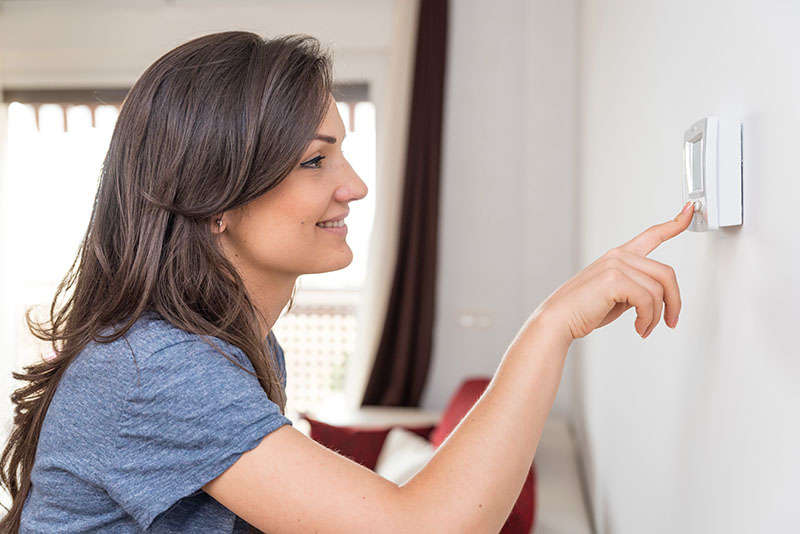
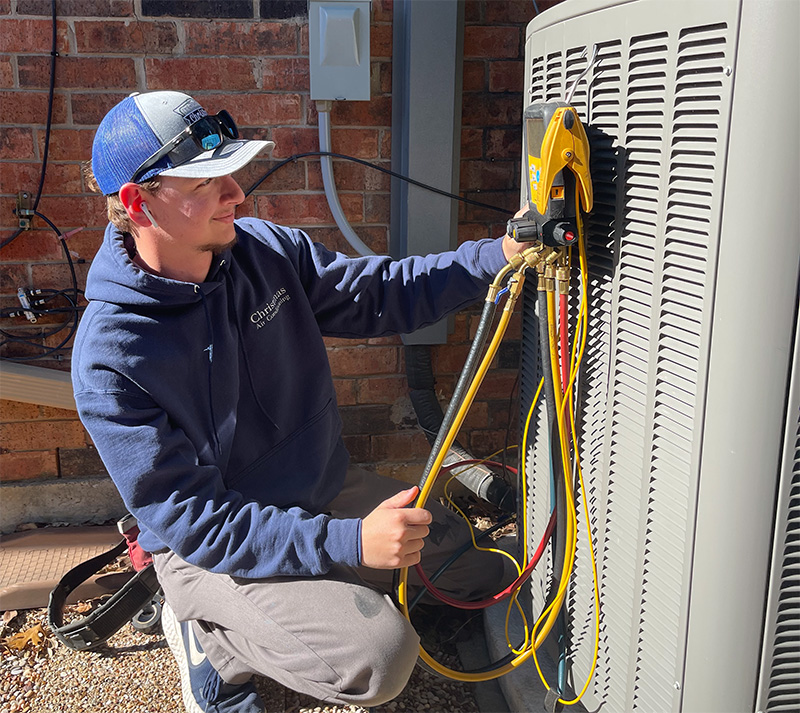
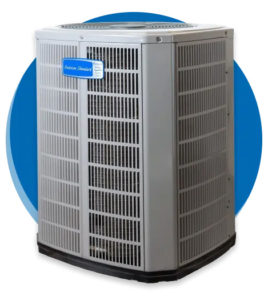 Central Air Conditioning
Central Air Conditioning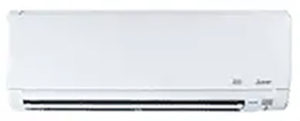 Ductless Air Conditioning Systems
Ductless Air Conditioning Systems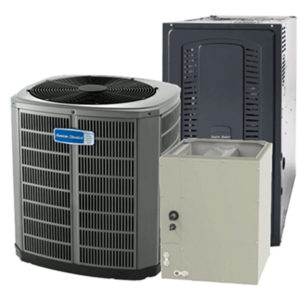 Evaporator A/C Systems
Evaporator A/C Systems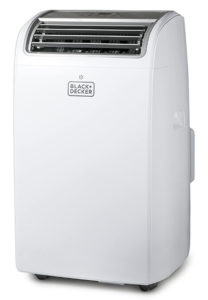 Portable Air Conditioning Units
Portable Air Conditioning Units